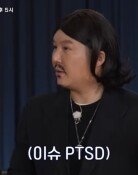[Op-Ed] Confirming a Cabinet Nominee`s Integrity
[Op-Ed] Confirming a Cabinet Nominee`s Integrity
Posted February. 11, 2009 09:41,
I screwed up. I was disappointed and frustrated with myself, said U.S. President Barack Obama in a news conference a week ago over the discovery that Tom Daschle, his nominee for health secretary, was found to have failed to pay taxes. The three-time senator was deemed the best choice for spearheading healthcare reform, but withdrew his nomination. Obama blamed himself for the mistake by saying, Ive got to own up to my mistake. Ultimately, it`s important for this administration to send a message that there aren`t two sets of rules you know, one for prominent people and one for ordinary folks who have to pay their taxes.
Obama canceled the nomination of Daschle, his political mentor, because he is fully aware that integrity is no less important than competence. Daschles withdrawal also illustrates how rigorous confirmation hearings in the U.S. Senate are. The screening system for ranking U.S. officials is renowned for its thoroughness. So much so that parents who want their children to be high-ranking officials are said to pay keen attention to their childrens integrity early on. Certain officials reportedly gave up positions in higher offices to maintain their reputations and protect the privacy of their families.
In Korea, the media and lawmakers have questioned the qualifications of Unification Minister-nominee Hyun In-taek and National Intelligence Service Director-designate Won Sei-hoon. Responding to a slew of criticism against him, Hyun said, The allegation of double publication of my theses is not true or stems from an administrative mistake. I didnt evade taxes and the manipulation of my residence was for my childrens convenience in attending schools. He only admitted to committing traffic law violations. Won also denied allegations over real estate speculation and tax evasion. Their nominations cannot be denied by these allegations because they are hard to prove. The people, however, are clearly disappointed by their dubious credentials.
To judge a Cabinet nominees integrity is tough. Equally difficult is choosing between a competent figure who lacks integrity and a man of integrity who lacks abilities. A clergy member without wealth and children is the best choice for a ministerial post if integrity is the prime factor in judging a ministers qualifications. One effective way to correctly judge integrity is setting standards by analyzing confirmation hearings over the past nine years and precedents in advanced economies. Confirmations hearings in economically developed nations consider faithful tax payments a prerequisite for public officials. A nominee who committed irregularities in his or her work should also be considered unqualified.
Editorial Writer Gwon Sun-taek (maypole@donga.com)






![“잠만 자면 입이 바싹바싹”…잠들기 전에 이것 체크해야 [알쓸톡]](https://dimg.donga.com/c/138/175/90/1/wps/NEWS/IMAGE/2026/02/23/133404748.3.jpg)
